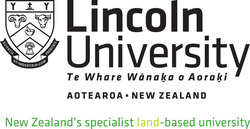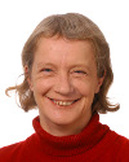
Professor Caroline Saunders
Caroline has 20 years research expertise in the UK and New Zealand. She has over 100 publications specialising in agri-environmental issues and policy. Her research has focused on evaluating the link between economics and the environment. Her current research also specialises in evaluating trade and the environment, including an assessment of international market policies and their impact on the development of the NZ agricultural export sector. She has a track record in researching impacts of novel technologies on the agricultural sector, including the development of organic and GM food. She has undertaken research for a wide range of private and public bodies both here and overseas. These include the EU commission, MAF, MFAT, Treasury, MfE and various producer groups.
Caroline has 20 years research expertise in the UK and New Zealand. She has over 100 publications specialising in agri-environmental issues and policy. Her research has focused on evaluating the link between economics and the environment. Her current research also specialises in evaluating trade and the environment, including an assessment of international market policies and their impact on the development of the NZ agricultural export sector. She has a track record in researching impacts of novel technologies on the agricultural sector, including the development of organic and GM food. She has undertaken research for a wide range of private and public bodies both here and overseas. These include the EU commission, MAF, MFAT, Treasury, MfE and various producer groups.
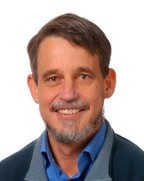
Professor Paul Dalziel
Paul has been Professor of Economics at Lincoln University since 2002. He works full-time in the university’s Agribusiness and Economics Research Unit (the AERU) where he is deputy director. His research has focused on economic and social policy, with a particular interest on regional economic development. Paul has published more than 100 refereed publications, including papers on sustainable development indicators. He was the Science Leader for a national trans-disciplinary research programme on education and employment linkages (www.eel.org.nz), funded over five years (2007-12) by the Ministry of Business, Employment and Innovation. Paul is in charge of the Economic and Governance pillars of the NZSD framework.
Paul has been Professor of Economics at Lincoln University since 2002. He works full-time in the university’s Agribusiness and Economics Research Unit (the AERU) where he is deputy director. His research has focused on economic and social policy, with a particular interest on regional economic development. Paul has published more than 100 refereed publications, including papers on sustainable development indicators. He was the Science Leader for a national trans-disciplinary research programme on education and employment linkages (www.eel.org.nz), funded over five years (2007-12) by the Ministry of Business, Employment and Innovation. Paul is in charge of the Economic and Governance pillars of the NZSD framework.
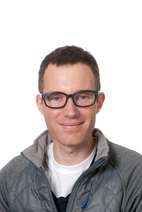
Jay Whitehead
Jay joined the project mid 2014. He holds a Master’s Degree “Environmental policy” from Lincoln University, Honours First Class.
As part of this degree Jay researched the environmental behaviour of New Zealand manufacturing enterprises. This research continued beyond university as Jay worked to implement and develop lessons from the research in small New Zealand businesses. Prior to taking up role on the NZSD, Jay spent several years working in Japan in a variety of roles from automotive manufacturing to public school teaching. More recently, he worked as a land use planner at the Christchurch City Council, specialising in rural land use consents in Banks Peninsula.
Jay presented his PhD proposal in March 2016 “Sharing the burden of Sustainability”, with supervisors Prof Caroline Saunders and Prof Paul Dalziel.
Jay joined the project mid 2014. He holds a Master’s Degree “Environmental policy” from Lincoln University, Honours First Class.
As part of this degree Jay researched the environmental behaviour of New Zealand manufacturing enterprises. This research continued beyond university as Jay worked to implement and develop lessons from the research in small New Zealand businesses. Prior to taking up role on the NZSD, Jay spent several years working in Japan in a variety of roles from automotive manufacturing to public school teaching. More recently, he worked as a land use planner at the Christchurch City Council, specialising in rural land use consents in Banks Peninsula.
Jay presented his PhD proposal in March 2016 “Sharing the burden of Sustainability”, with supervisors Prof Caroline Saunders and Prof Paul Dalziel.
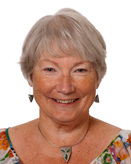
Dr. Lesley Hunt
Lesley has been a key social researcher in the ARGOS and then the Dashboard programme since 2003, and helped anchor the social dimensions from their beginning.. She retired from the AERU at University of Lincoln at the end of September 2014. She brought a unique blend of qualitative and quantitative analytical skills (she was a statistician in her earlier career) that built linkages and collaboration to help herd our transdisciplinary team members.
Lesley has had what could be called a varied career! It started with lecturing in statistics for three years in the Maths Department at Otago University after graduation with a B.Sc.(Hons) in mathematics in 1968. Then she had a year teaching in schools in London, following the typical Kiwi OE pattern, then eight years in Te Kuiti, starting a family and doing some maths and physics teaching. In 1981 she moved to Christchurch where she has been ever since. In this time she has lectured a course in research methods to social work students at the University of Canterbury for twelve years, learned the piano and then become a piano teacher, spent seven years as a part-time biometrician with AgResearch at Lincoln, trained as a secondary teacher at the Christchurch College of Education, and recently completed a PhD at Lincoln University. The PhD was an organisational ethnography which studied why employees doing science in a particular Crown Research Institute were unhappy at work and what they did about it. It was titled 'Compliance at work: protecting identity and science practice under corporatisation'. Then she has been working as a social science researcher with the Agribusiness and Economics Research Unit at Lincoln University, hence her association with ARGOS and the Dashboard projects. With her skills and experience she can bring to the fore the views of farmers and growers on sustainability and how people working in the primary sector make meaning of their work.
Lesley has been a key social researcher in the ARGOS and then the Dashboard programme since 2003, and helped anchor the social dimensions from their beginning.. She retired from the AERU at University of Lincoln at the end of September 2014. She brought a unique blend of qualitative and quantitative analytical skills (she was a statistician in her earlier career) that built linkages and collaboration to help herd our transdisciplinary team members.
Lesley has had what could be called a varied career! It started with lecturing in statistics for three years in the Maths Department at Otago University after graduation with a B.Sc.(Hons) in mathematics in 1968. Then she had a year teaching in schools in London, following the typical Kiwi OE pattern, then eight years in Te Kuiti, starting a family and doing some maths and physics teaching. In 1981 she moved to Christchurch where she has been ever since. In this time she has lectured a course in research methods to social work students at the University of Canterbury for twelve years, learned the piano and then become a piano teacher, spent seven years as a part-time biometrician with AgResearch at Lincoln, trained as a secondary teacher at the Christchurch College of Education, and recently completed a PhD at Lincoln University. The PhD was an organisational ethnography which studied why employees doing science in a particular Crown Research Institute were unhappy at work and what they did about it. It was titled 'Compliance at work: protecting identity and science practice under corporatisation'. Then she has been working as a social science researcher with the Agribusiness and Economics Research Unit at Lincoln University, hence her association with ARGOS and the Dashboard projects. With her skills and experience she can bring to the fore the views of farmers and growers on sustainability and how people working in the primary sector make meaning of their work.

